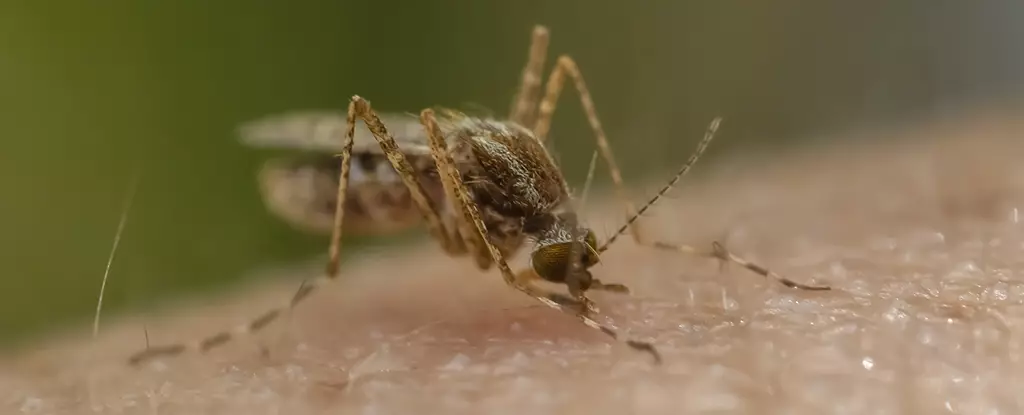Malaria continues to be a daunting global health issue, responsible for nearly 250 million infections annually and a substantial death toll, particularly among vulnerable populations in sub-Saharan Africa. Recent advances in medical science often provide new insights into tackling such pervasive diseases. One particularly innovative avenue is the use of genetically modified mosquitoes in the delivery of a new malaria vaccine. This groundbreaking approach promises a significant leap in efficacy compared to existing vaccines, marking a pivotal turn in the quest to combat malaria.
The latest development stems from research conducted at Leiden University and Radboud University in the Netherlands, focused on a vaccine that employs a genetically weakened strain of the Plasmodium falciparum parasite—the very organism responsible for malaria. The superior formulation, termed GA2, demonstrated a promising success rate in trials, with a striking nine out of ten young adults receiving this vaccine exhibiting full protection against the disease. In stark contrast, the older version of the vaccine, GA1, showed success in only one out of eight participants.
At the heart of this approach lies the innovative use of the mosquito as a delivery mechanism. By utilizing a controlled mosquito bite to introduce the GA2 variant, researchers simulate the natural transmission process. This method not only mirrors nature’s own pathway but also allows the modified parasite to reach the human liver as a full-strength variant would. However, the critical difference is that the GA2 variant has been genetically designed to inhibit its development within the liver. Consequently, individuals are exposed to the antigenic components of the parasite without experiencing the symptomatic manifestations of malaria.
Understanding the underlying mechanism of the GA2 vaccine provides compelling insight into its effectiveness. The modified parasite takes almost a week to mature within the liver, considerably longer than the previous iteration, GA1, which matured within just 24 hours. This extended timeframe allows the immune system crucial additional time to recognize and mount a defense against the parasite before it can enter the bloodstream.
The immune response activation induced by GA2 is not only more robust but also more versatile. The immunological profile generated by this vaccine encompasses a broader array of immune cell types, suggesting why it offers enhanced protection. This diverse response could be pivotal in providing lasting immunity against wild-type Plasmodium falciparum infections, making GA2 a promising candidate for further refinement and development.
Concern about safety is paramount when it comes to vaccine development, and the GA2 trials indicated relatively minor side effects primarily characterized by localized reactions at the injection site. Participants experienced transient redness and itchiness without severe adverse events, affirming that the modified mosquito bite method may be both safe and effective. Additionally, standard anti-malaria medications were administered to participants post-study, underscoring responsible clinical practices in the management of any residual risks.
Despite this promising development, malaria remains a persistent public health dilemma with current vaccines providing only 50-77% efficacy, often diminishing considerably after a year. The potential of GA2, however, raises hope not only for improved vaccine options but also for better formulations in the future.
Challenges remain, particularly regarding the practical implementation of such a mosquito-delivery method on a widespread scale. The intricacies of deploying genetically modified organisms in public health must be navigated with caution, considering socio-ethical concerns and logistical barriers to deployment.
The exploration of GA2 as a malaria vaccine exemplifies the innovative strategies emerging from the field of immunology. By leveraging both genetic modification and natural biological mechanisms—mosquito biting—the research paves the way for potent vaccines that could revolutionize how malaria is approached. While it may take time to realize the widespread utilization of this technology, the strides made signify an optimistic future in efforts to curb one of the most lethal diseases in human history. As researchers continue to refine this promising vaccine, it is crucial to maintain momentum in discovering sustainable solutions for malaria eradication.


Leave a Reply